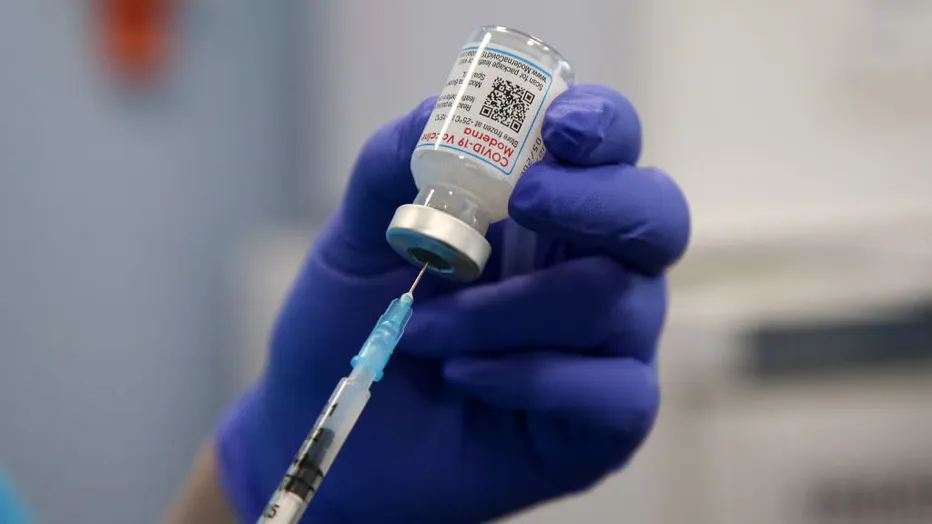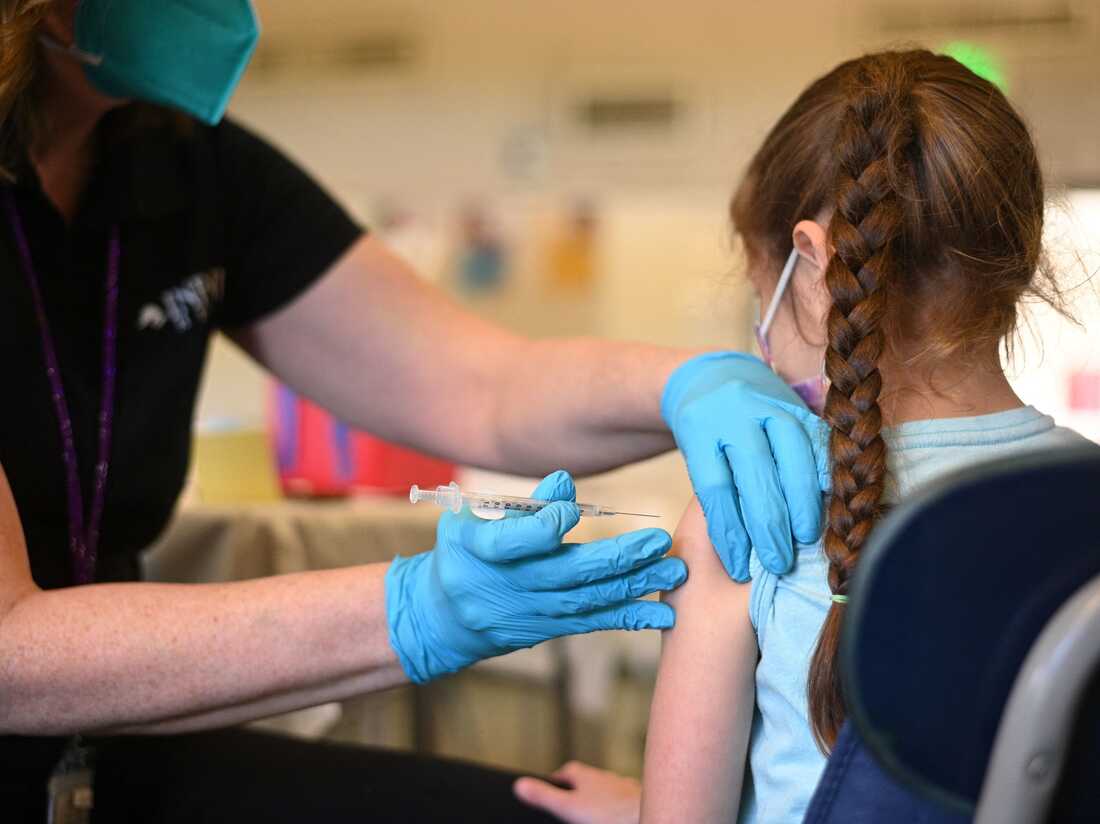Moderna is seeking to be the first to offer COVID-19 vaccine for the youngest American children, as it asked the Food and Drug Administration Thursday to clear low-dose shots for babies, toddlers and preschoolers.
Frustrated families are waiting impatiently for a chance to protect the nation’s littlest kids as all around them people shed masks and other public health precautions — even though highly contagious coronavirus mutants continue to spread. Already about three-quarters of children of all ages show signs they’ve been infected at some point during the pandemic.
Moderna submitted data to the Food and Drug Administration that it hopes will prove two low-dose shots can protect children younger than 6 — although the effectiveness wasn’t nearly as high in kids tested during the omicron surge as earlier in the pandemic.
“There is an important unmet medical need here with these youngest kids,” Dr. Paul Burton, Moderna’s chief medical officer, told The Associated Press. Two kid-size shots “will safely protect them. I think it is likely that over time they will need additional doses. But we’re working on that.”

“There is an important unmet medical need here with these youngest kids,” Dr. Paul Burton, Moderna’s chief medical officer, told The Associated Press. Two kid-size shots “will safely protect them. I think it is likely that over time they will need additional doses. But we’re working on that.”
Moderna’s vaccine isn’t the only one in the race. Pfizer is soon expected to announce if three of its even smaller-dose shots work for the littlest kids, months after the disappointing discovery that two doses weren’t quite strong enough.
Whether it’s one company’s shots or both, FDA vaccine chief Dr. Peter Marks said the agency will “move quickly without sacrificing our standards” in deciding if tot-sized doses are safe and effective.
While questions are swirling about what’s taking so long, Marks pointedly told lawmakers earlier this week that the FDA can’t evaluate a product until a manufacturer completes its application. In a statement Thursday, the FDA said it will schedule a meeting to publicly debate Moderna’s evidence with its independent scientific advisers but that the company still must submit some additional data. Moderna expects to do so next week.
“It’s critically important that we have the proper evaluation so that parents will have trust in any vaccines that we authorize,” Marks told a Senate committee.
If FDA clears vaccinations for the littlest, next the Centers for Disease Control and Prevention would have to recommend who needs them — all tots or just those at higher risk from COVID-19.
“It’s very important to get the youngest children vaccinated” but “moving quickly doesn’t mean moving sloppily,” said Dr. Philip Landrigan, a pediatrician and public health expert at Boston College. FDA must “see if it’s safe. They need to see if it’s effective. And they need to do so swiftly. But they won’t cut corners.”
Many parents are desperate for whichever vaccine gets to the scientific finish line first.
“We’ve been kind of left behind as everybody else moves on,” said Meagan Dunphy-Daly, a Duke University marine biologist whose 6-year-old daughter is vaccinated — but whose 3-year-old and 18-month-old sons are part of Pfizer’s trial.
RELATED: Dr. Fauci says the ‘US is out of the pandemic phase’
The family continues to mask and take other precautions until it’s clear if the boys got real vaccine or dummy shots. If it turns out they weren’t protected in the Pfizer study and Moderna’s shots are cleared first, Dunphy-Daly said she’d seek them for her sons.
“I will feel such a sense of relief when I know my boys are vaccinated and that the risk of them getting a serious infection is so low,” she said.

